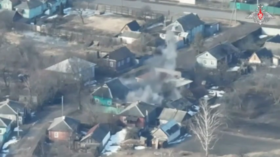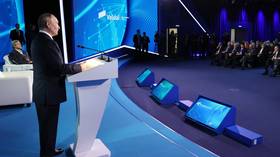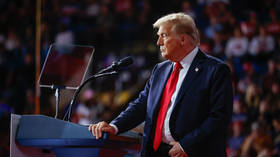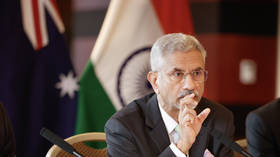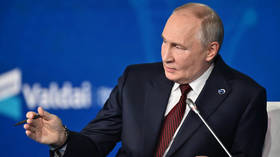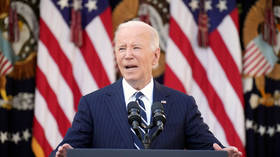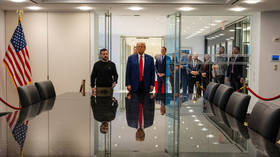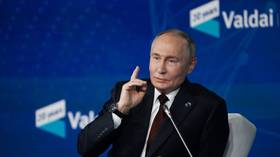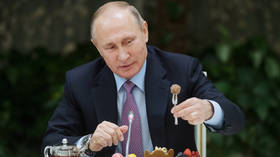Russia could establish ‘cordon sanitaire’ in Ukraine – Putin
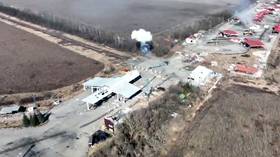
Russia could “at some point” set up a buffer zone in Kiev-controlled territories in order to protect the Russian population from Ukrainian strikes, President Vladimir Putin told supporters and journalists early on Monday morning.
The ongoing “tragic events” in Russian regions on the border with Ukraine could eventually “force” Moscow to“create a certain cordon sanitaire” in the areas still under Kiev’s control, Putin said during a question-and-answer session in Moscow, shortly after it was announced that he is set to be reelected as president in a landslide victory.
Russian forces would establish a “security zone that would be quite difficult for the adversary to overcome with its weapons, primarily of foreign origin,” if and “when we consider it appropriate,” Putin added.
Ukraine routinely launches artillery and drone strikes on Russian border regions, with many attacks targeting residential blocks, resulting in civilian deaths. Last week, Ukrainian forces also attempted to breach the border, attacking multiple locations along its frontier with Russia’s Kursk and Belgorod regions.
Kiev claimed that the operation was staged by the so-called Russian Volunteer Corps (RDK) and Russian Freedom Legion, paramilitary units linked to the country’s military intelligence agency. The units, which portray themselves as collaborator forces composed of Russian defectors, as well as fugitive neo-Nazis, are designated by Moscow as terrorist organizations.
The Russian Defense Ministry has described the attempted raids as a total failure, saying that the attacking forces lost over 1,500 soldiers and dozens of armored vehicles. Putin likened the saboteurs to the Vlasov army collaborators who fought under German Nazi command during WWII.
“Those traitors, that scum fought on the side of Nazis, and now there are similar people who fight on the side of neo-nazis,” the president stressed, further reminding of their fate. “We all know how they ended up.”
In late January, Putin already proposed setting up a large “demilitarized zone” in Ukraine to prevent long-range attacks on Russian territory. His comments came after two Ukrainian bombardments of Belgorod and Donetsk that killed more than 50 people.
